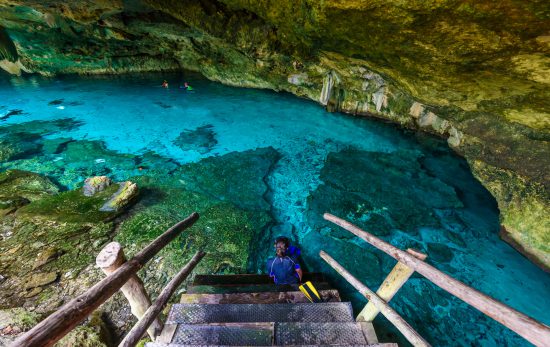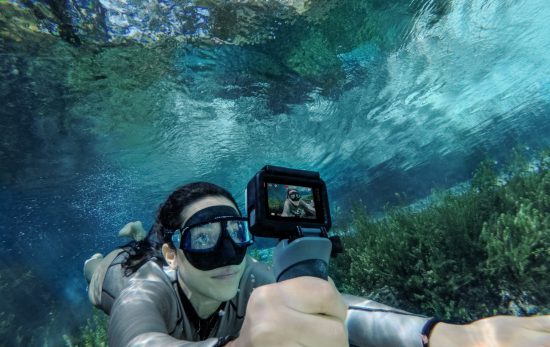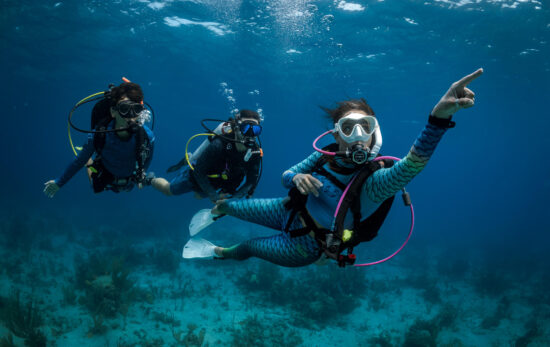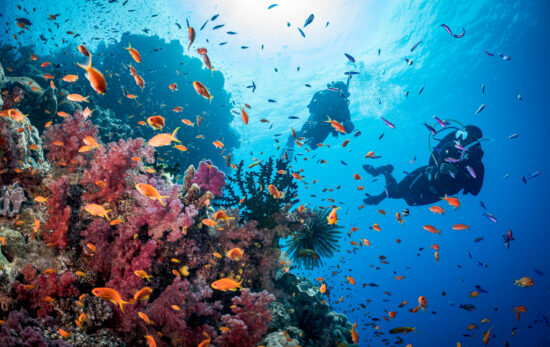Most divers love to travel. After all, divers have a thirst for knowledge, adventure and exploration. But, did you know that working towards your PADI Master Scuba Diver™ is one of the best things you can do while exploring our ocean planet.
Training for your Master Scuba Diver rating has many benefits: fine-tuning your diving skills, gaining confidence and, of course, bragging rights for joining the top two percent of elite recreational divers around the world. If you’re passionate about travel and diving, earning your PADI Master Scuba Diver can be an excuse to do more of what you love.
First, here’s a quick overview of what it takes to earn the title of Master Scuba Diver:
- Complete the Open Water Diver, Advanced Open Water Diver and Rescue Diver courses, plus five PADI Specialty Diver Courses
- Log a minimum of 50 dives
- Be at least 12 years old
Earn Certifications in Different Destinations
Every scuba diving destination has something special to offer. Pick up your Drift Diver Specialty certification in Cozumel or another iconic drift diving destination. Visit Coron, Malta, Florida’s Shipwreck Trail, or any of the world’s best wreck diving destinations for your Wreck Diver Specialty, and learn underwater photography and videography while exploring the colorful reefs of Fiji or the Red Sea.
Taking a PADI course is also a great way to meet people while traveling. During the PADI Rescue Diver course, you’ll learn important skills through role-playing, and the Rescue Diver course is a fun way to make new dive buddies while improving your diving confidence and skill.
The Best Diving Destinations to Enhance Your Diving Skills
From incredible freshwater rock formations in Iceland to oceanic whitetip sharks in Egypt and drift diving in Palau, the ocean is incredibly diverse. Each with their own unique landscapes and conditions, here are some of the best diving destinations to undertake and practice the PADI Specialty Diver courses!
Great Barrier Reef, Australia
The Great Barrier Reef is the world’s largest coral reef system, home to over 1,500 fish species and abundant exciting marine life. Visibility here is immense, and the underwater landscapes are varied. From thriving coral gardens to hidden shipwrecks, the Great Barrier Reef boasts remarkable diving that some might say is unmatched anywhere else.
Suggested Specialties:
- Deep Diver: Explore deeper parts of the reef and shipwrecks.
- Digital Underwater Photographer: Capture the vibrant marine life.
- Enriched Air (Nitrox) Diver: Extend your bottom time for longer dives.
Red Sea, Egypt
From shipwrecks to sharks and canyons, the Red Sea is known for its beautiful and diverse underwater landscapes. As well as lively reefs brimming with reef fish and pelagics (depending where you’re diving). Venture to Dahab’s infamous Blue Hole or encounter reef sharks in Ras Mohamed, while practicing and improving your dive skills in this salty region. The Red Sea promises diverse dive sites and incredible underwater scenery, for divers of all levels.
Suggested Specialties:
- Wreck Diver: Dive historic wrecks like the Thistlegorm.
- Drift Diver: Experience the currents and marine life of the Red Sea.
Cenotes, Mexico
Mexico is home to around 6,000 cenotes, which are naturally-formed skinholes filled with freshwater! Within them lies enchanting mystery, from limestone formations to underwater caves and caverns. The lighting in cenotes is particularly incredible from the sunlight that penetrates partially collapsed overhead caverns. It goes without saying that the PADI Cavern Diver Speciality helps divers navigate these areas safely.
Suggested Specialties:
- Cavern Diver: Navigate through the beautiful underwater caves.
- Sidemount Diver: Improve your buoyancy and streamline your gear.
- Full Face Mask Diver: Enhance your comfort and underwater communication.
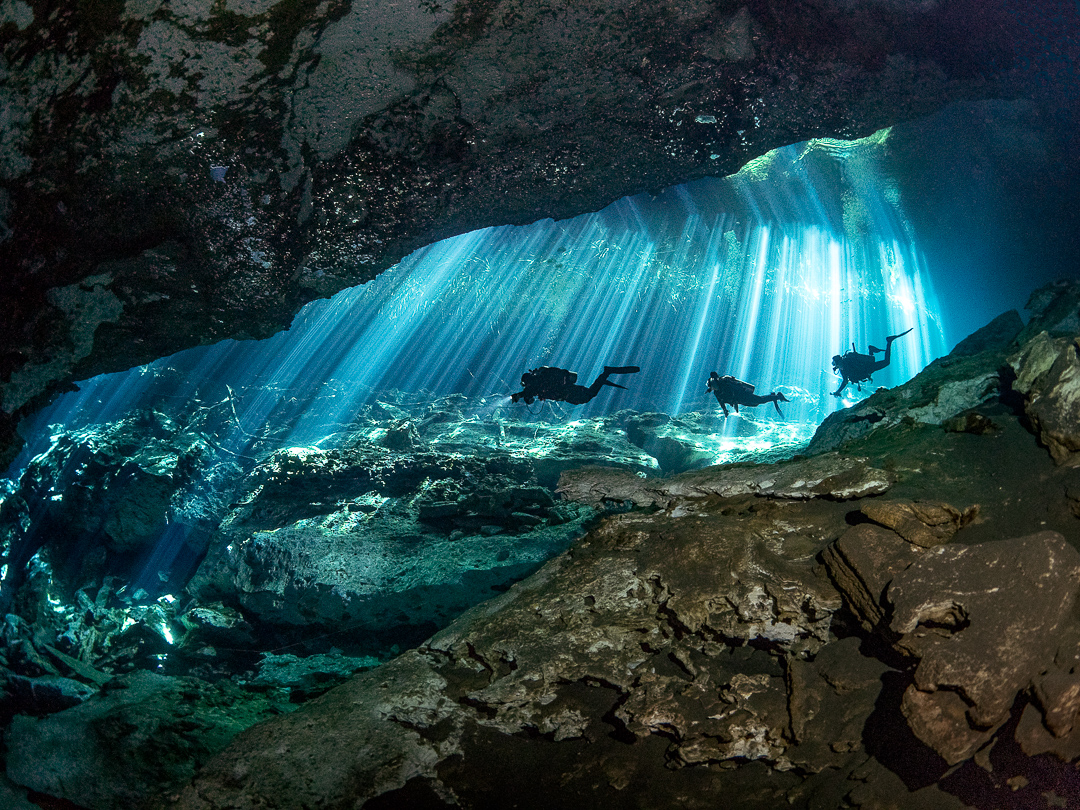
Galápagos Islands, Ecuador
Ecuador is all about biodiversity when it comes to diving! This is particularly true of the Galapagos Marine Reserve, which is home to bucket-list species like marine iguanas and Galapagos penguins. On the other end of the spectrum, divers can photograph hammerheads and whale sharks at Darwin and Wolf Islands in the northern part of the Galapagos.
Suggested Specialties:
- Underwater Photographer: Capture memorable dives.
- Peak Performance Buoyancy: Master your buoyancy for challenging conditions.
- PADI AWARE Specialist: Engage in marine conservation.
Silfra Fissure, Iceland
Within Iceland’s Thingvellir National Park lies Silfra Fissure, the only place in the world where you can dive between two tectonic plates! Above all, visibility here exceeds 100 meters (328 feet), classing it as some of the best in the world. This is a destination for monumental rock formations and a melange of blue freshwater hues, where the PADI Dry Suit Diver Speciality will certainly come in handy.
Suggested Specialties:
- Dry Suit Diver: Stay warm and dry in cold water.
- Altitude Diver: Dive at higher elevations in a freshwater environment.
- Ice Diver: Learn techniques for diving in cold temperatures.
Palau, Micronesia
Situated in the western Pacific Ocean, Micronesia is home to a variety of islands loved by divers, particularly Palau. Thanks to its renowned sites, including Blue Corner and Jellyfish Lake, this is one of the top diving destinations in the world. Dive conditions here are varied, with excellent drift opportunities, caves and tunnels, as well as stunning pelagics like manta rays and cetaceans!
Suggested Specialties:
- Drift Diver: Experience the strong currents and rich marine life.
- AWARE – Coral Reef Conservation: Learn about protecting coral reefs.
Choose an Eco-Tourism Focus
Distinctive specialties also count towards your Master Scuba Diver rating, which is great news for travelers who seek out ecotourism opportunities. Contact a local PADI Dive Center or Resort about enrolling in a Dive Against Debris Specialty. You’ll learn how to remove and report debris to a global database scientists use to advocate for ocean protection.
In addition, an increasing number of scuba diving destinations offer coral reef restoration training with a distinctive specialty certification. In a typical coral restoration/coral gardening course you’ll learn how coral nurseries work and participate in caring for or transplanting corals.
The Coral Reef Renewal Distinctive Specialty is offered in The Bahamas, Bali, Bonaire, Cozumel, Grand Cayman, the Florida Keys, Roatan, Bay Islands Honduras, Thailand and other locations around the world.
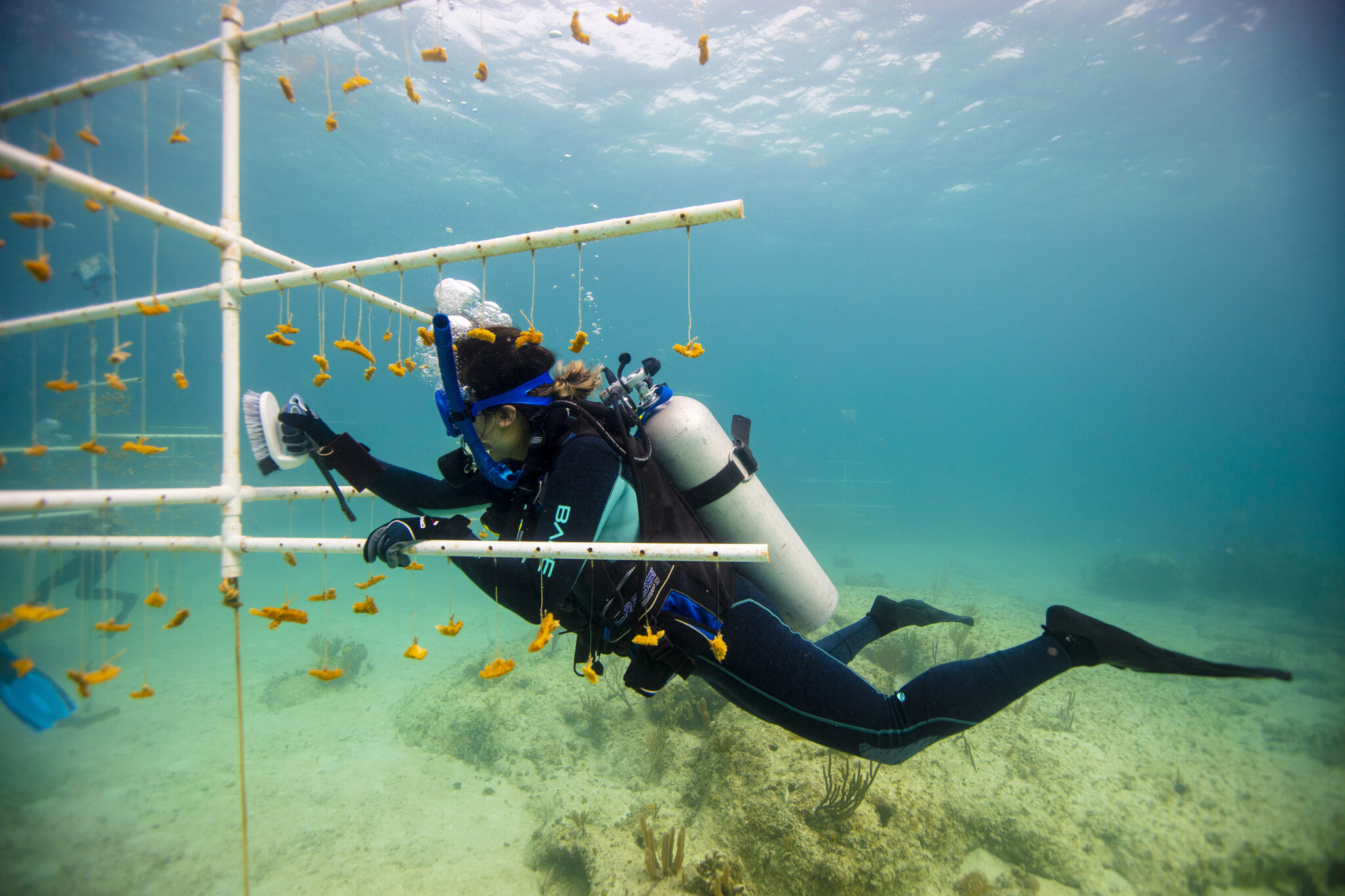
The Master Scuba Diver Path is Yours
Becoming a Master Scuba DiverTM is a personal journey and a fulfilling one! Your journey can involve travel, adventure, zombies, or even a little pelagic magic. You can also create a Master Scuba Diver program customized for the diving in your local area. Just talk to your PADI Instructor or local dive shop. No matter which path you choose, becoming a Master Scuba Diver is a major achievement that will earn you recognition for life.
If you are already a diver, join the best of the best recreational divers. There is no better time than now!

